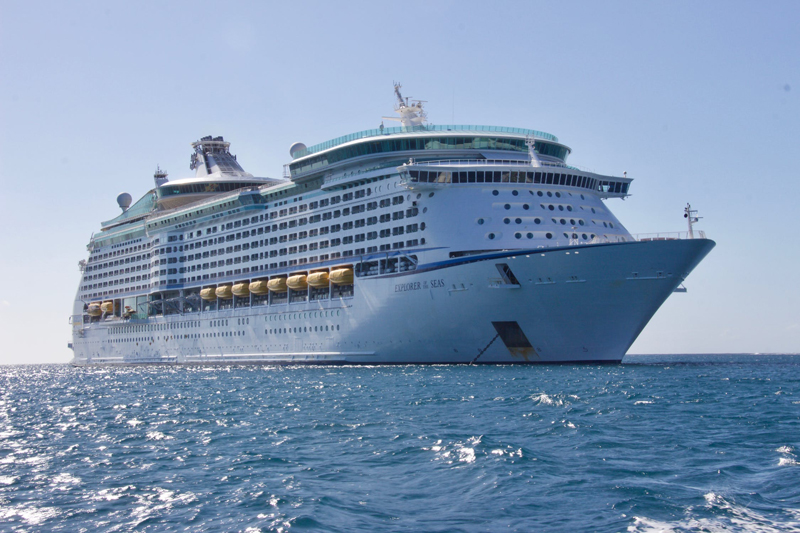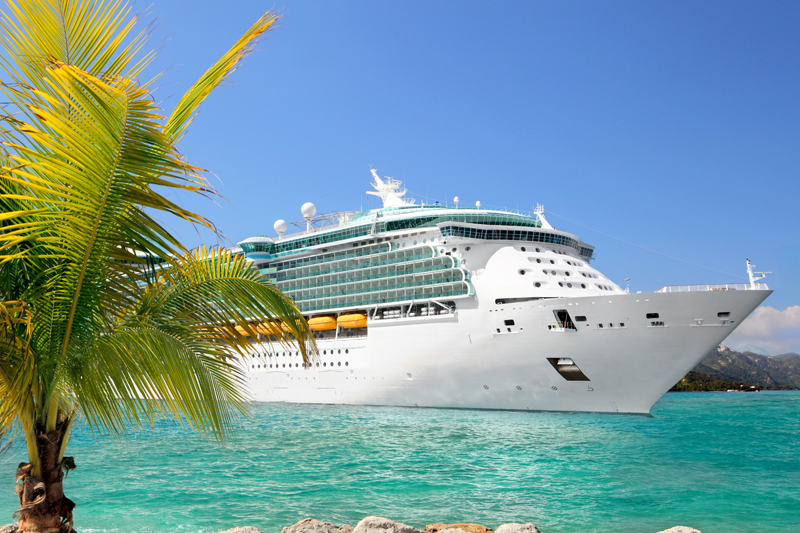10 Key Tips For Purchasing Travel Insurance

Travel insurance is more critical than ever - no matter whether you’re flying to your vacation destination, planning a road trip or taking a cruise. In today’s environment, travel regulations are changing constantly and cancellations are happening more often. Travel insurance can protect your vacation investment, providing peace of mind.
Trip insurance can reimburse travelers for covered losses such as unexpected illnesses, trip cancellations, severe weather, medical expenses resulting from accidents, and much more. Some international destinations also require proof of travel insurance for entering the country. It's very important to understand what travel insurance does not cover, particularly with regard to the coronavirus pandemic.
While vacationers have often purchased travel insurance for cruises and tours, it’s important for driving vacations as well. Travel insurance can cover expenses incurred from car accidents, rental car damage, hurricanes, unexpected trip interruptions, and vacation rental cancellations. It can also assist those renting RVs, which has been another popular option for vacations.
Here are ten important tips for purchasing travel insurance for your next trip:
1. Verify Your Existing Coverage. Check your existing policies before purchasing travel insurance to see what kinds of coverage you already have. Review your personal and family health insurance, car insurance, auto club plans and credit card programs to see what types of travel insurance coverage is provided. Look for potential gaps in policies, particularly with regard to who and what is covered under your existing insurance plans.
2. Buy Travel Insurance Promptly. Purchasing travel insurance within 15 days of your first vacation payment can provide additional coverage for pre-existing conditions and other benefits. Prompt purchase also provides full cancellation benefits in case anything comes up after your first payment has been made. Carefully understanding the potential benefits provided by your travel insurance policy is key. If you're considering certain types of coverage such as Cancel For Any Reason insurance, the timing of purchase is important. This type of insurance rider must be purchased within 14-21 days of your first payment and typically cannot be added to an existing trip insurance policy at a later date. Check with trip insurance companies carefully to understand the rules and what percentage of your vacation costs will be covered if you purchase this type of policy.
3. Shop Around For Policies. Travel insurance plans and costs vary significantly, so it’s important to check out different options and carefully compare them with your specific needs. Look at leading travel insurer websites such as Travel Guard, Allianz and others. Trip insurance plans from a wide variety of companies can also be compared on sites such as InsureMyTrip.com, TravelInsurance.com and SquareMouth.com. If you're taking a cruise, also evaluate insurance policies offered by the cruise lines since they may offer plenty of flexibility and good pandemic coverage. In addition, consider membership organizations such as Medjet and Covac Global that can provide global medical evacuation and repatriation, global COVID-19 evacuation and repatriation, remote rescue and other services.
4. Understand What’s Covered. When purchasing travel insurance, it's extremely important to understand exactly what is covered and under what specific circumstances – and what is not. Travel insurance policies can be confusing. Read the entire policy carefully and talk with an agent before purchasing. This is particularly important in the era of COVID-19, when many potential losses due to this pandemic are not covered. If you have questions about what is covered under policies you are considering, call the travel insurance issuer directly and review policy inclusions and exclusions with them before purchasing. This is critical for COVID-19 concerns since some policies stipulate that any issues resulting from epidemic and pandemic-related illnesses are not covered. Some insurance policies may also have exclusions based on Level 4 CDC advisories and other government travel warnings. Agents at InsureMyTrip.com have been very helpful in navigating coverages. The company has introduced a new recommendation tool that makes it easier to find insurance plans best suited to protect against COVID-19 related travel concerns.
5. Find Out If Certain Vacation Activities Are Not Covered. Some activities that you may be engaging in on your vacation such as scuba diving, glacier hiking, whitewater rafting, and other activities that may be categorized as “extreme sports.” In many cases, these kinds of extreme sports activities are not covered by travel insurance policies. SquareMouth.com has a convenient form that will help travel insurance shoppers identify plans that will provide coverage for sports and adventure activities. Trip insurance plans from a wide variety of companies can be compared on sites such as InsureMyTrip.com and SquareMouth.com.
6. Make Sure Your Entire Trip Is Protected By Insurance. Travel insurance can be purchased independently or as part of a travel or cruise package. If you're purchasing travel insurance as part of your land vacation or cruise package, make sure that the insurance covers any flights, car rentals, hotel accommodations and all transportation to/from your point of departure as well. If you're making all of your travel arrangements through a travel agent, your agent should be able to wrap the entire purchase into your coverage. This may not be the case if you are purchasing your airline tickets separately. In that case, you may be better off buying your travel insurance independently so your flights will be included.
7. Research International Destination Requirements For Travel Insurance. Some countries now have mandatory travel insurance requirements for entry. This has become more common due to the COVID-19 pandemic. Arriving travelers must be able to show that they have specific travel medical insurance that covers specific COVID-19 costs and related hospitalization, doctors’ visits, prescriptions and air ambulance transportation if needed. Sometimes a set amount of insurance must be purchased directly from the country’s government prior to entry. Other countries allow travelers to purchase their own insurance independently as long as they can show proof of purchase of the required dollar amount of coverage.
8. Work With A Top Travel Advisor. A good travel advisor can help vacationers navigate the travel insurance landscape. Travel agents are knowledgeable about travel insurance policies and their coverages. They can help travelers understand the various options and identify the policies that best suit their needs. In addition, they are familiar with international destination requirements for travel insurance as well.
9. Strongly Consider Cancel For Any Reason Policies. Travel insurance generally does not cover trip cancellations due to uncertainties about coronavirus outbreaks, border closures, demonstrations or civil strife, rain in the weather forecast, or concerns that cruise or tour itineraries might change. These issues typically would only be covered by Cancel For Any Reason policies. Cancel For Any Reason policies provide varying amounts of money back, up to as much as 50-75% of your trip cost, if you decide to change your plans two to three days before departure. Cancel for Any Reason policies are significantly more expensive, but they can sometimes be worth the cost. Here again, the timing of purchase is important. This type of insurance rider often must be purchased within 14-21 days of your first travel booking and typically cannot be added to an existing trip insurance policy at a later date. In addition, all non-refundable prepaid trip expenses must be insured under these policies. Check with trip insurance companies carefully to understand the rules and what percentage of your vacation costs will be covered if you purchase this type of policy.
10. Purchase Travel Insurance Before Hazardous Weather Develops. When hurricanes and other storm warning appear, travelers often start thinking about changing their travel plans. Those who have already purchased travel insurance may be protected, depending upon the coverage their policies offer. Travel insurance purchases do not cover hazards that have already been predicted, however. Insurance only protects against "unforeseen" circumstances. Once a hurricane or severe storm develops, it is no longer unforeseen and new travel insurance offering hurricane protection coverage cannot protect against it. It's important to note that not all travel insurance policies cover hurricanes, tropical storms, snow storms and other weather issues. In addition, some policies only cover hurricane-related claims that occur 14 days after travel insurance is purchased. Other policies have very specific language defining when hurricane coverage is applicable as well. Research several travel insurance policies and check carefully to see what is included if a hurricane or severe weather situation develops.
Once you've purchased your policy, it's important to contact your travel insurance provider if your trip changes. A modification to your insurance plan will be needed if you change your dates of travel, the cost of your trip, your state of residence and other aspects. Your travel advisor or travel insurance agent can provide complete details.
Trip insurance can reimburse travelers for covered losses such as unexpected illnesses, trip cancellations, severe weather, medical expenses resulting from accidents, and much more. Some international destinations also require proof of travel insurance for entering the country. It's very important to understand what travel insurance does not cover, particularly with regard to the coronavirus pandemic.
While vacationers have often purchased travel insurance for cruises and tours, it’s important for driving vacations as well. Travel insurance can cover expenses incurred from car accidents, rental car damage, hurricanes, unexpected trip interruptions, and vacation rental cancellations. It can also assist those renting RVs, which has been another popular option for vacations.
Here are ten important tips for purchasing travel insurance for your next trip:
1. Verify Your Existing Coverage. Check your existing policies before purchasing travel insurance to see what kinds of coverage you already have. Review your personal and family health insurance, car insurance, auto club plans and credit card programs to see what types of travel insurance coverage is provided. Look for potential gaps in policies, particularly with regard to who and what is covered under your existing insurance plans.
2. Buy Travel Insurance Promptly. Purchasing travel insurance within 15 days of your first vacation payment can provide additional coverage for pre-existing conditions and other benefits. Prompt purchase also provides full cancellation benefits in case anything comes up after your first payment has been made. Carefully understanding the potential benefits provided by your travel insurance policy is key. If you're considering certain types of coverage such as Cancel For Any Reason insurance, the timing of purchase is important. This type of insurance rider must be purchased within 14-21 days of your first payment and typically cannot be added to an existing trip insurance policy at a later date. Check with trip insurance companies carefully to understand the rules and what percentage of your vacation costs will be covered if you purchase this type of policy.
3. Shop Around For Policies. Travel insurance plans and costs vary significantly, so it’s important to check out different options and carefully compare them with your specific needs. Look at leading travel insurer websites such as Travel Guard, Allianz and others. Trip insurance plans from a wide variety of companies can also be compared on sites such as InsureMyTrip.com, TravelInsurance.com and SquareMouth.com. If you're taking a cruise, also evaluate insurance policies offered by the cruise lines since they may offer plenty of flexibility and good pandemic coverage. In addition, consider membership organizations such as Medjet and Covac Global that can provide global medical evacuation and repatriation, global COVID-19 evacuation and repatriation, remote rescue and other services.
4. Understand What’s Covered. When purchasing travel insurance, it's extremely important to understand exactly what is covered and under what specific circumstances – and what is not. Travel insurance policies can be confusing. Read the entire policy carefully and talk with an agent before purchasing. This is particularly important in the era of COVID-19, when many potential losses due to this pandemic are not covered. If you have questions about what is covered under policies you are considering, call the travel insurance issuer directly and review policy inclusions and exclusions with them before purchasing. This is critical for COVID-19 concerns since some policies stipulate that any issues resulting from epidemic and pandemic-related illnesses are not covered. Some insurance policies may also have exclusions based on Level 4 CDC advisories and other government travel warnings. Agents at InsureMyTrip.com have been very helpful in navigating coverages. The company has introduced a new recommendation tool that makes it easier to find insurance plans best suited to protect against COVID-19 related travel concerns.
5. Find Out If Certain Vacation Activities Are Not Covered. Some activities that you may be engaging in on your vacation such as scuba diving, glacier hiking, whitewater rafting, and other activities that may be categorized as “extreme sports.” In many cases, these kinds of extreme sports activities are not covered by travel insurance policies. SquareMouth.com has a convenient form that will help travel insurance shoppers identify plans that will provide coverage for sports and adventure activities. Trip insurance plans from a wide variety of companies can be compared on sites such as InsureMyTrip.com and SquareMouth.com.
6. Make Sure Your Entire Trip Is Protected By Insurance. Travel insurance can be purchased independently or as part of a travel or cruise package. If you're purchasing travel insurance as part of your land vacation or cruise package, make sure that the insurance covers any flights, car rentals, hotel accommodations and all transportation to/from your point of departure as well. If you're making all of your travel arrangements through a travel agent, your agent should be able to wrap the entire purchase into your coverage. This may not be the case if you are purchasing your airline tickets separately. In that case, you may be better off buying your travel insurance independently so your flights will be included.
7. Research International Destination Requirements For Travel Insurance. Some countries now have mandatory travel insurance requirements for entry. This has become more common due to the COVID-19 pandemic. Arriving travelers must be able to show that they have specific travel medical insurance that covers specific COVID-19 costs and related hospitalization, doctors’ visits, prescriptions and air ambulance transportation if needed. Sometimes a set amount of insurance must be purchased directly from the country’s government prior to entry. Other countries allow travelers to purchase their own insurance independently as long as they can show proof of purchase of the required dollar amount of coverage.
8. Work With A Top Travel Advisor. A good travel advisor can help vacationers navigate the travel insurance landscape. Travel agents are knowledgeable about travel insurance policies and their coverages. They can help travelers understand the various options and identify the policies that best suit their needs. In addition, they are familiar with international destination requirements for travel insurance as well.
9. Strongly Consider Cancel For Any Reason Policies. Travel insurance generally does not cover trip cancellations due to uncertainties about coronavirus outbreaks, border closures, demonstrations or civil strife, rain in the weather forecast, or concerns that cruise or tour itineraries might change. These issues typically would only be covered by Cancel For Any Reason policies. Cancel For Any Reason policies provide varying amounts of money back, up to as much as 50-75% of your trip cost, if you decide to change your plans two to three days before departure. Cancel for Any Reason policies are significantly more expensive, but they can sometimes be worth the cost. Here again, the timing of purchase is important. This type of insurance rider often must be purchased within 14-21 days of your first travel booking and typically cannot be added to an existing trip insurance policy at a later date. In addition, all non-refundable prepaid trip expenses must be insured under these policies. Check with trip insurance companies carefully to understand the rules and what percentage of your vacation costs will be covered if you purchase this type of policy.
10. Purchase Travel Insurance Before Hazardous Weather Develops. When hurricanes and other storm warning appear, travelers often start thinking about changing their travel plans. Those who have already purchased travel insurance may be protected, depending upon the coverage their policies offer. Travel insurance purchases do not cover hazards that have already been predicted, however. Insurance only protects against "unforeseen" circumstances. Once a hurricane or severe storm develops, it is no longer unforeseen and new travel insurance offering hurricane protection coverage cannot protect against it. It's important to note that not all travel insurance policies cover hurricanes, tropical storms, snow storms and other weather issues. In addition, some policies only cover hurricane-related claims that occur 14 days after travel insurance is purchased. Other policies have very specific language defining when hurricane coverage is applicable as well. Research several travel insurance policies and check carefully to see what is included if a hurricane or severe weather situation develops.
Once you've purchased your policy, it's important to contact your travel insurance provider if your trip changes. A modification to your insurance plan will be needed if you change your dates of travel, the cost of your trip, your state of residence and other aspects. Your travel advisor or travel insurance agent can provide complete details.

Related Articles
Editor's Picks Articles
Top Ten Articles
Previous Features
Site Map
Content copyright © 2023 by Nancy Schretter. All rights reserved.
This content was written by Nancy Schretter. If you wish to use this content in any manner, you need written permission. Contact Nancy Schretter for details.





